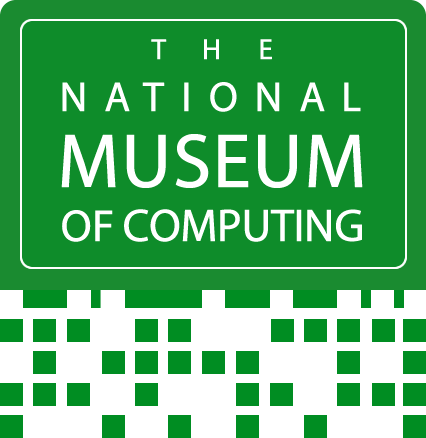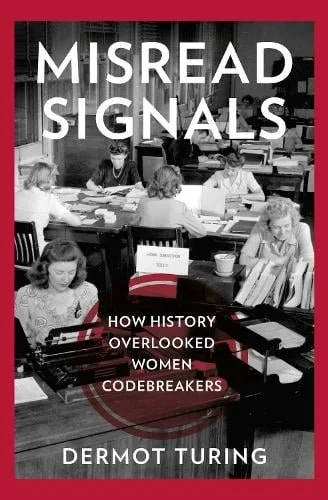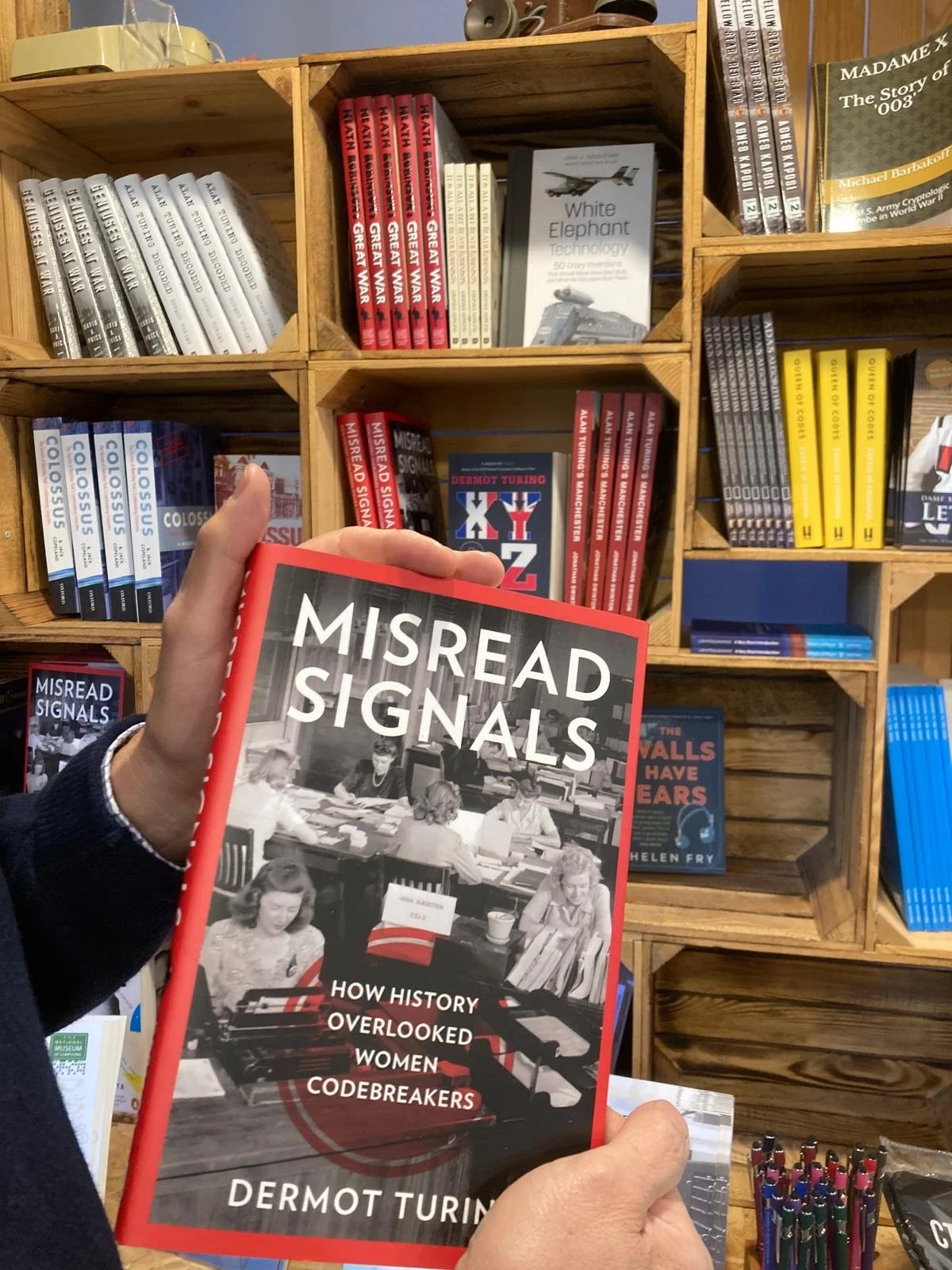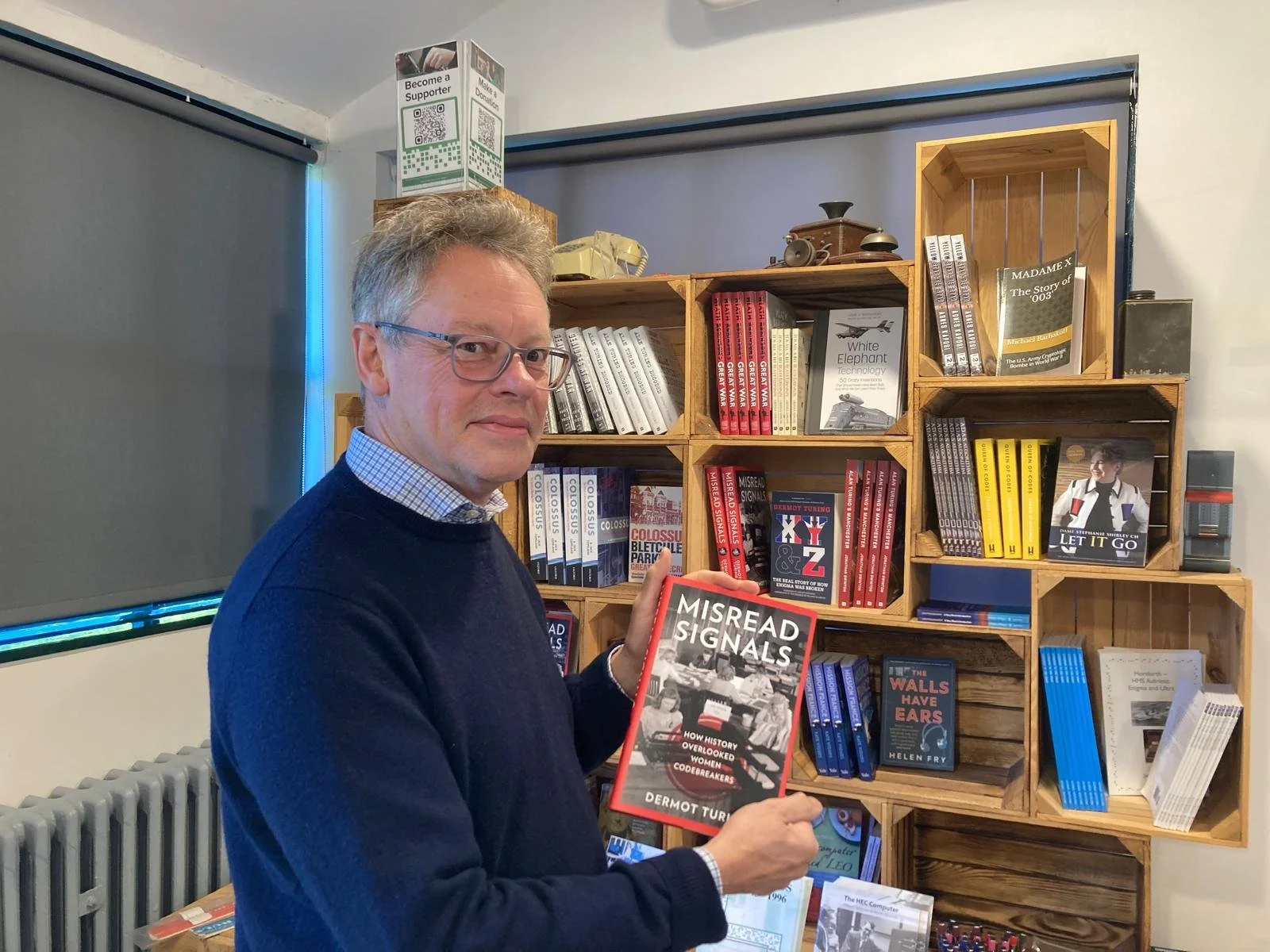Misread Signals - How history overlooked women codebreakers - Dermot Turing
Misread Signals - How history overlooked women codebreakers - Dermot Turing
In this powerful new book, Sir Dermot Turing shines a much-needed spotlight on the crucial, yet often overlooked, contributions of the women who worked at Bletchley Park.
Through personal accounts and historical documents, Turing reveals the daily lives and vital roles these women played in codebreaking and intelligence. Their work was essential to the Allied victory, and this book is a moving tribute to their intelligence, determination, and resilience.
An essential read for anyone interested in World War II and the incredible stories of the women who helped shape history.
Bletchley Park is remembered as a land of male intellectuals who were supported by a staff of women in menial roles, with figures such as Alan Turing, William Tutte and John Tiltman taking centre stage. These are the men who worked on the fearsome Enigma and Lorenz ciphering systems – the men who helped sway the course of the war in the Allies’ favour.
But, as is often the case in the historical record, this is not the whole story. Women were not just secretaries and assistants: they had serious full-on codebreaking roles. And this was not just at Bletchley, or in the UK, or even only in the Second World War. These were women like Margaret Rock, who solved Enigma and other machine problems; Agnes Driscoll, the first US Navy codebreaker; and Asta Friedrichs, who postwar became a prime source for information on German Foreign Office codebreaking. Yet, when the histories were written, these women – and many more besides – somehow got left out.
Who were they? What did they achieve? How did they ‘vanish’? In Misread Signals, expert codebreaking historian Dermot Turing turns his attention to these long-ignored women and puts their contributions back in the spotlight where they belong.











